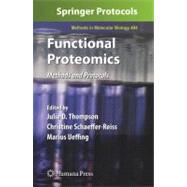
Note: Supplemental materials are not guaranteed with Rental or Used book purchases.
Purchase Benefits
What is included with this book?
| Preface | p. v |
| Contributors | p. xiii |
| Introduction | |
| A Brief Summary of the Different Types of Mass Spectrometers Used in Proteomics | p. 3 |
| Experimental Setups and Considerations to Study Microbial Interactions | p. 17 |
| Proteomics | |
| Plant Proteomics | p. 29 |
| Methods for Human CD8+ T Lymphocyte Proteome Analysis | p. 45 |
| Label-Free Proteomics of Serum | p. 67 |
| Flow Cytometric Analysis of Cell Membrane Microparticles | p. 79 |
| Protein Expression Profiling | |
| Exosomes | p. 97 |
| Toward a Full Characterization of the Human 20S Proteasome Subunits and Their Isoforms by a Combination of Proteomic Approaches | p. 111 |
| Free-Flow Electrophoresis of the Human Urinary Proteome | p. 131 |
| Versatile Screening for Binary Protein-Protein Interactions by Yeast Two-Hybrid Mating | p. 145 |
| Native Fractionation lsolation of Native Membrane-Bound Protein Complexes from Porcine Rod Outer Segments Using Isopycnic Density Gradient Centrifugation | p. 161 |
| Mapping of Signaling Pathways by Functional Interaction Proteomics | p. 177 |
| Selection of Recombinant Antibodies by Eukaryotic Ribosome Display | p. 193 |
| Production of Protein Arrays by Cell-Free Systems | p. 207 |
| Nondenaturing Mass Spectrometry to Study Noncovalent Protein/Protein and Protein/Ligand Complexes: Technical Aspects and Application to the Determination of Binding Stoichiometrics | p. 217 |
| Protein Processing Characterized by a Gel-Free Proteomics Approach | p. 245 |
| Identification and Characterization of N-Glycosylated Proteins Using Proteomics | p. 263 |
| Protein Analysis | |
| Data Standards and Controlled Vocabularies for Proteomics | p. 279 |
| The Pride Proteomics Identifications Database: Data Submission, Query, and Dataset Comparison | p. 287 |
| Searching the Protein Interaction Space Through the Mint Database | p. 305 |
| PepSeeker: Mining Information from Proteomic Data | p. 319 |
| Toward High-Throughput and Reliable Peptide Identification via Ms/Ms Spectra | p. 333 |
| MassSorter: Peptide Mass Fingerprinting Data Analysis | p. 345 |
| Database Similarity Searches | p. 361 |
| Protein Multiple Sequence Alignment | p. 379 |
| Discovering Biomedical Knowledge from the Literature | p. 415 |
| Protein Subcellular Localization Prediction Using Artificial Intelligence Technology | p. 435 |
| Protein Functional Annotation by Homology | p. 465 |
| Designability and Disease | p. 491 |
| Prism: Protein-Protein Interaction Prediction by Structural Matching | p. 505 |
| Prediction of Protein Interaction Based on Similarity of Phylogenetic Trees | p. 523 |
| Large Multiprotein Structures Modeling and Simulation: The Need for Mesoscopic Models | p. 537 |
| Dynamic Pathway Modeling of Signal Transduction Networks: A Domain-Oriented Approach | p. 559 |
| Index | p. 579 |
| Table of Contents provided by Ingram. All Rights Reserved. |
The New copy of this book will include any supplemental materials advertised. Please check the title of the book to determine if it should include any access cards, study guides, lab manuals, CDs, etc.
The Used, Rental and eBook copies of this book are not guaranteed to include any supplemental materials. Typically, only the book itself is included. This is true even if the title states it includes any access cards, study guides, lab manuals, CDs, etc.